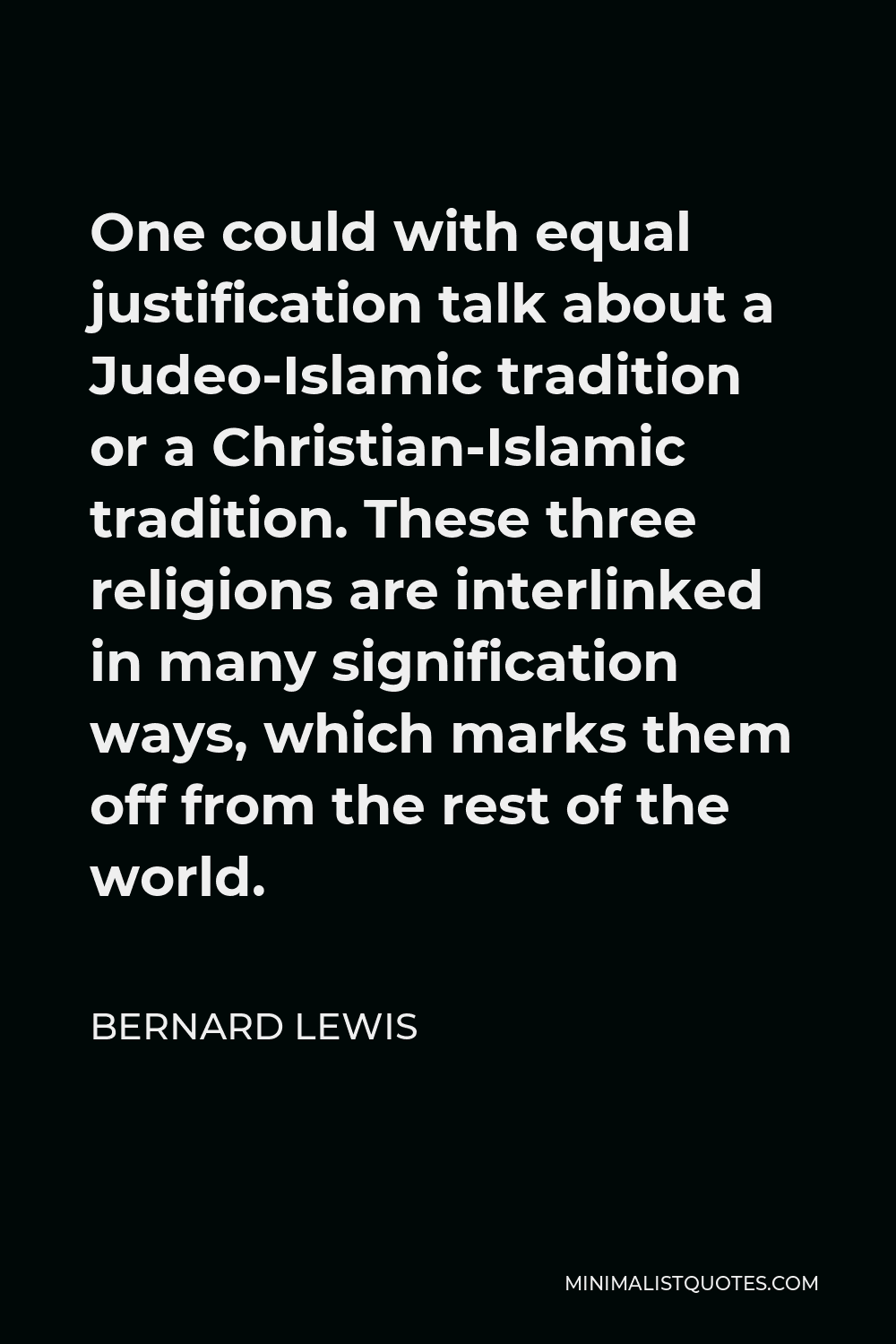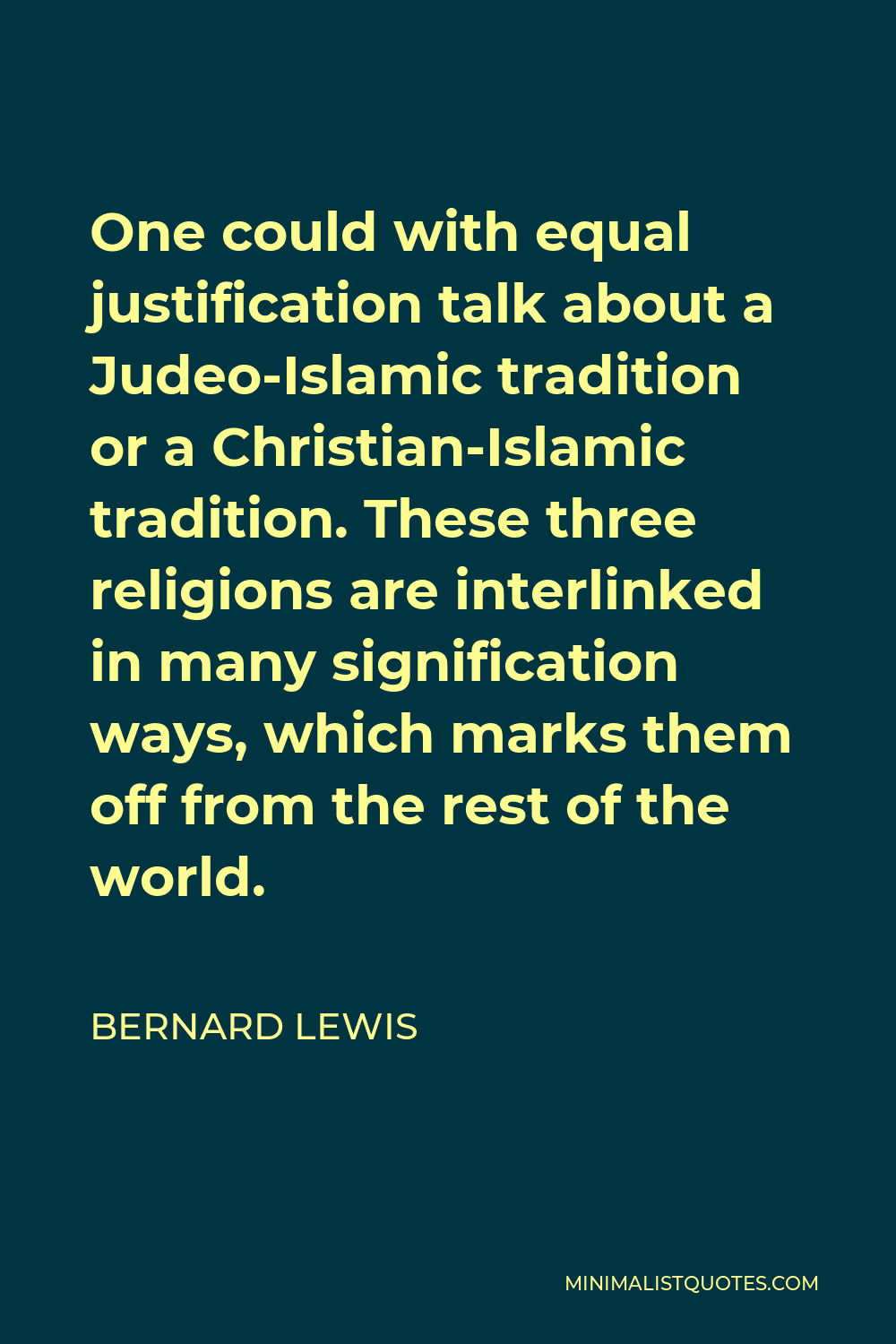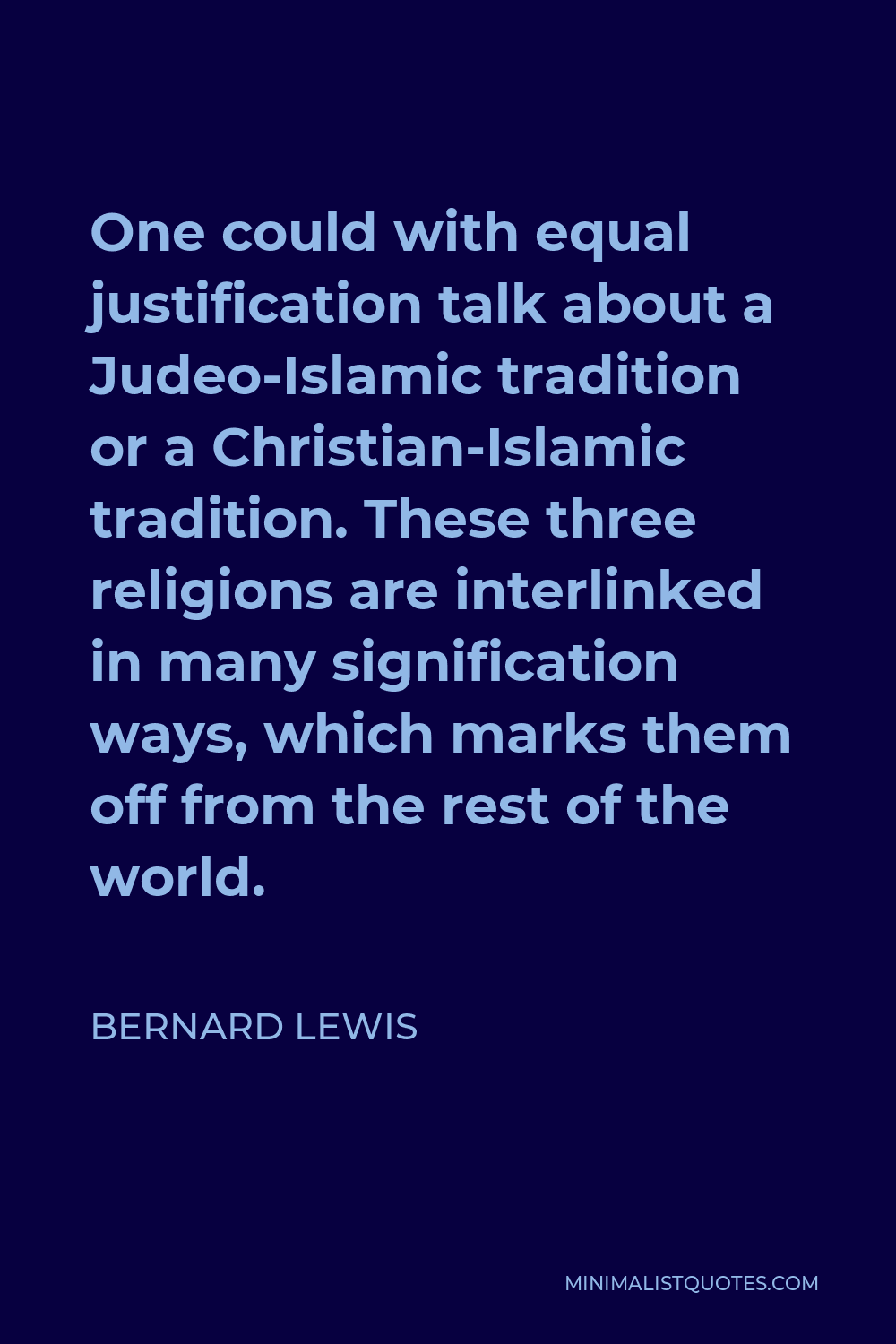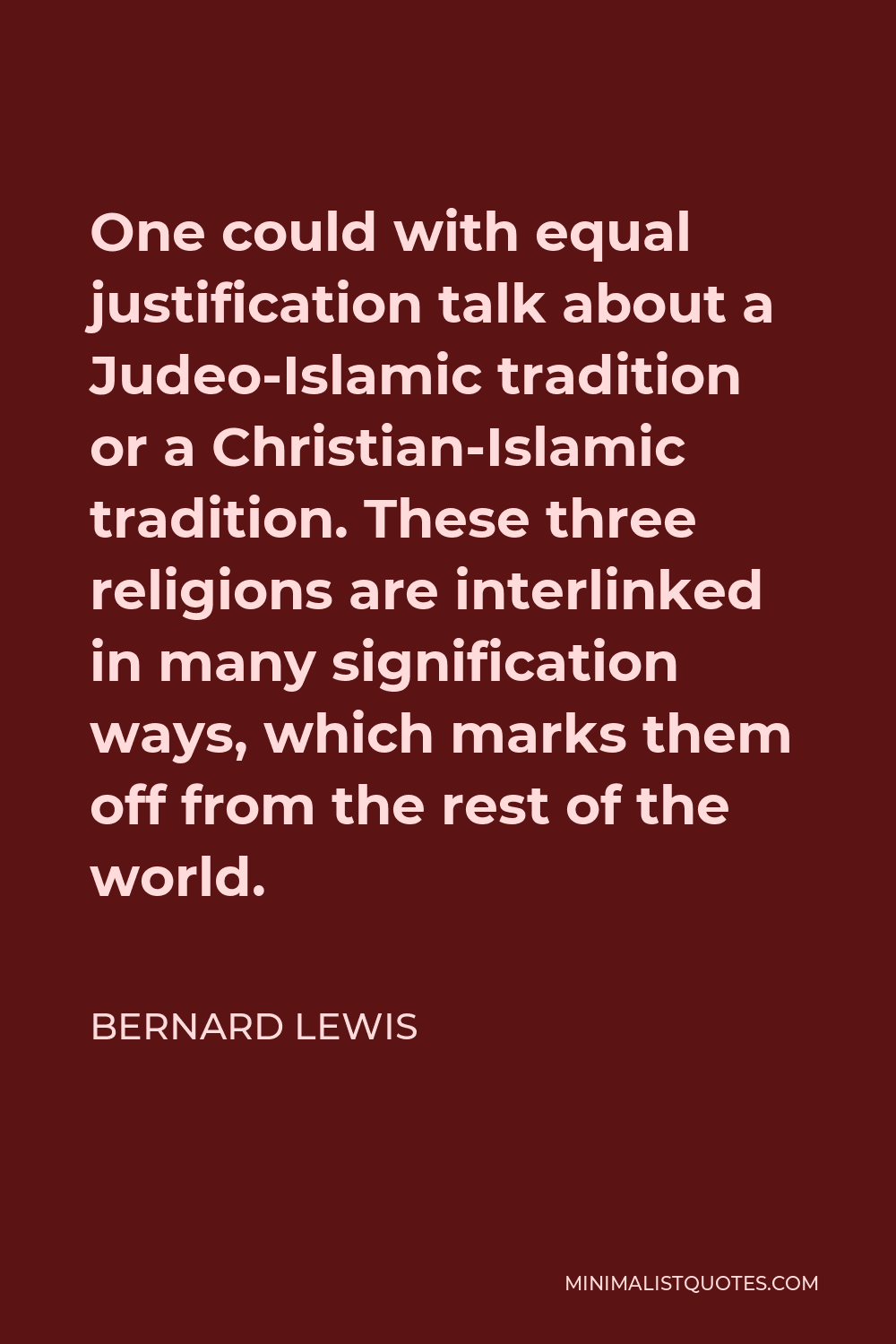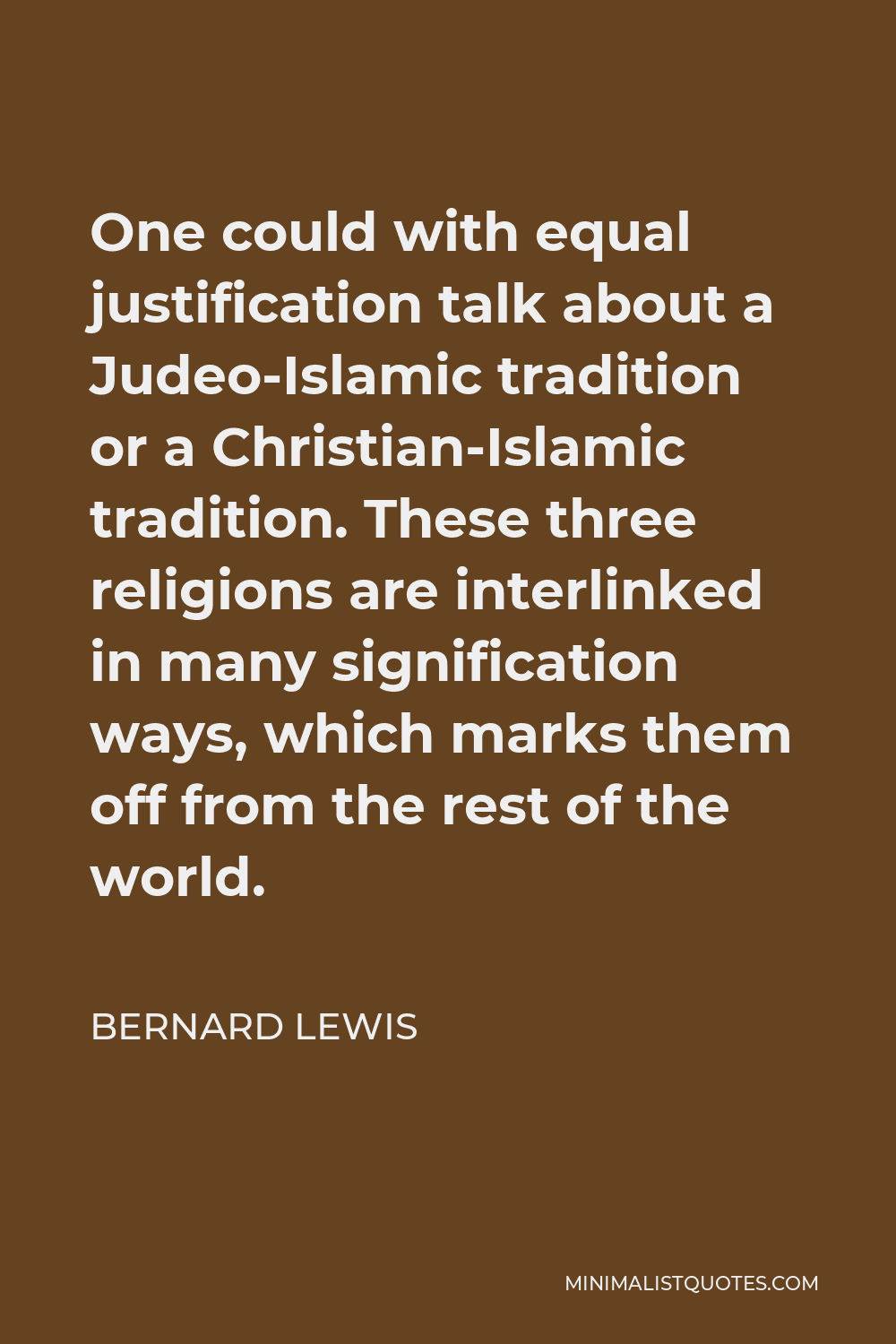We in the Western world make the great mistake of assuming that ours is the only form of good government; that democracy means what it means in the Anglo-American world and a few other places in the West, but not many others.
BERNARD LEWISOne could with equal justification talk about a Judeo-Islamic tradition or a Christian-Islamic tradition. These three religions are interlinked in many signification ways, which marks them off from the rest of the world.
More Bernard Lewis Quotes
-





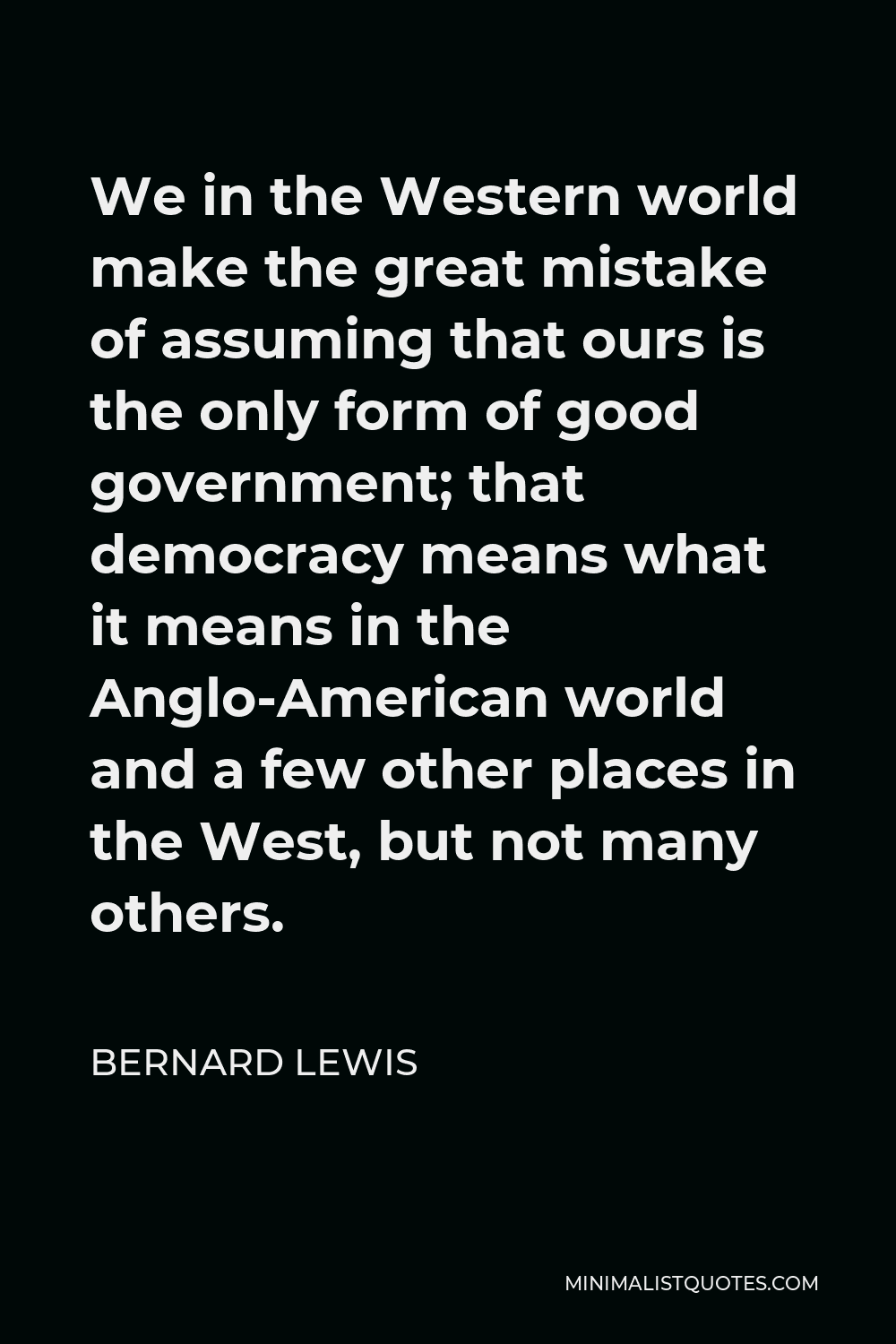
-





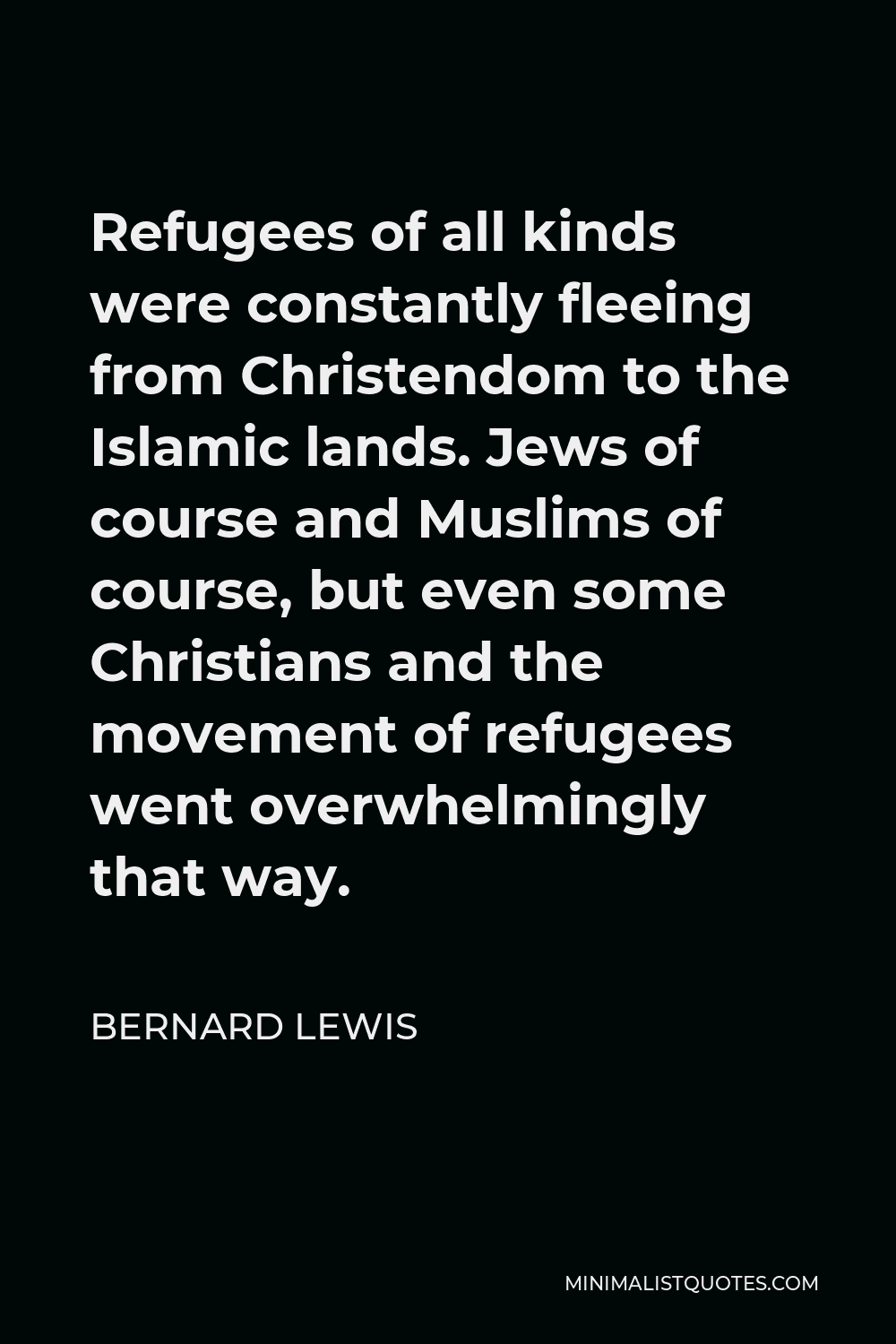
Refugees of all kinds were constantly fleeing from Christendom to the Islamic lands. Jews of course and Muslims of course, but even some Christians and the movement of refugees went overwhelmingly that way.
BERNARD LEWIS -





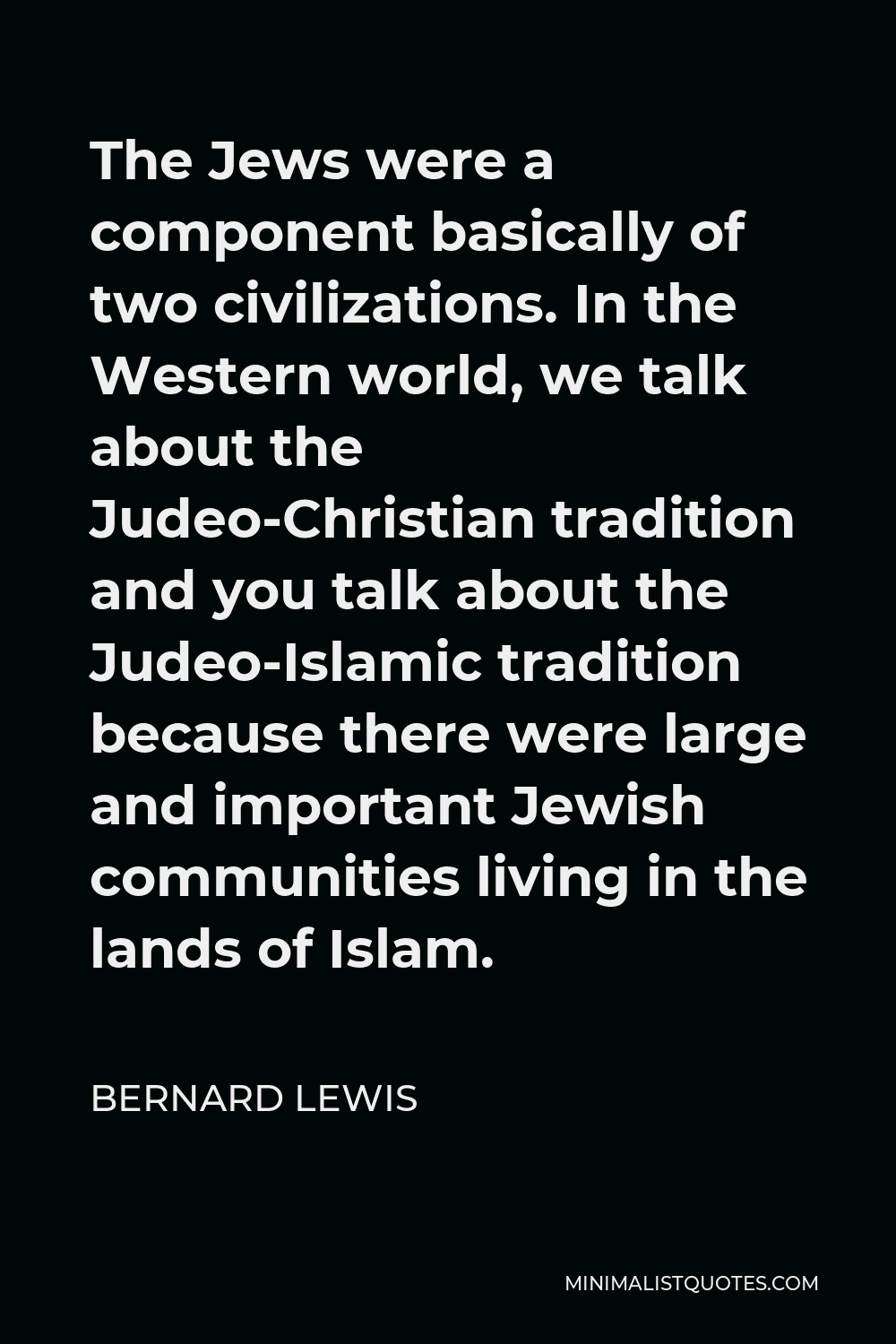
The Jews were a component basically of two civilizations. In the Western world, we talk about the Judeo-Christian tradition and you talk about the Judeo-Islamic tradition because there were large and important Jewish communities living in the lands of Islam.
BERNARD LEWIS -





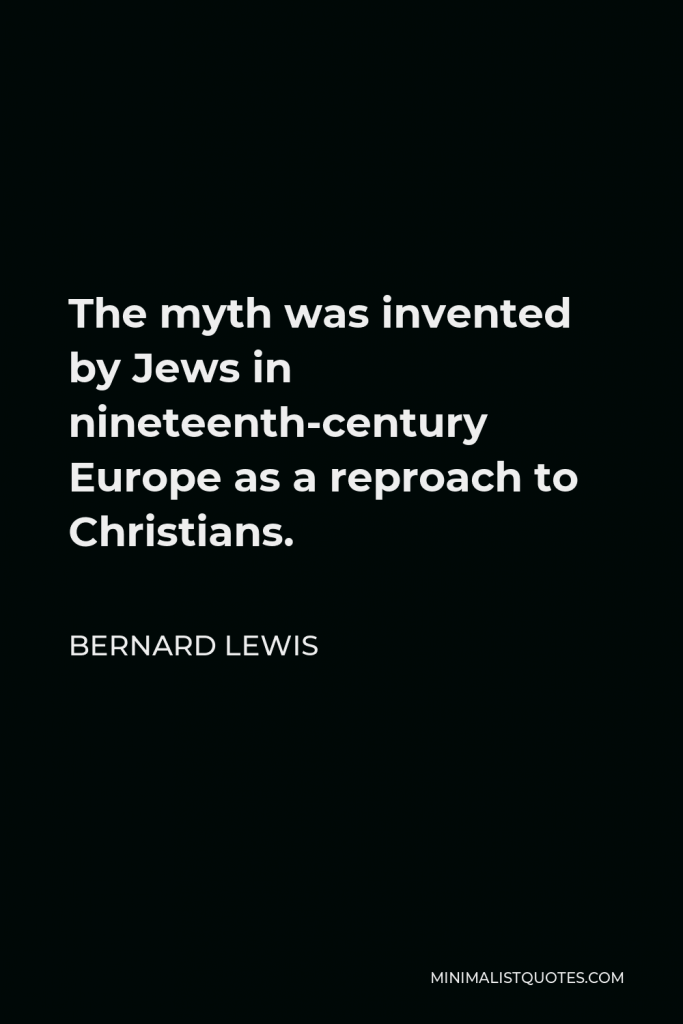

The myth was invented by Jews in nineteenth-century Europe as a reproach to Christians.
BERNARD LEWIS -





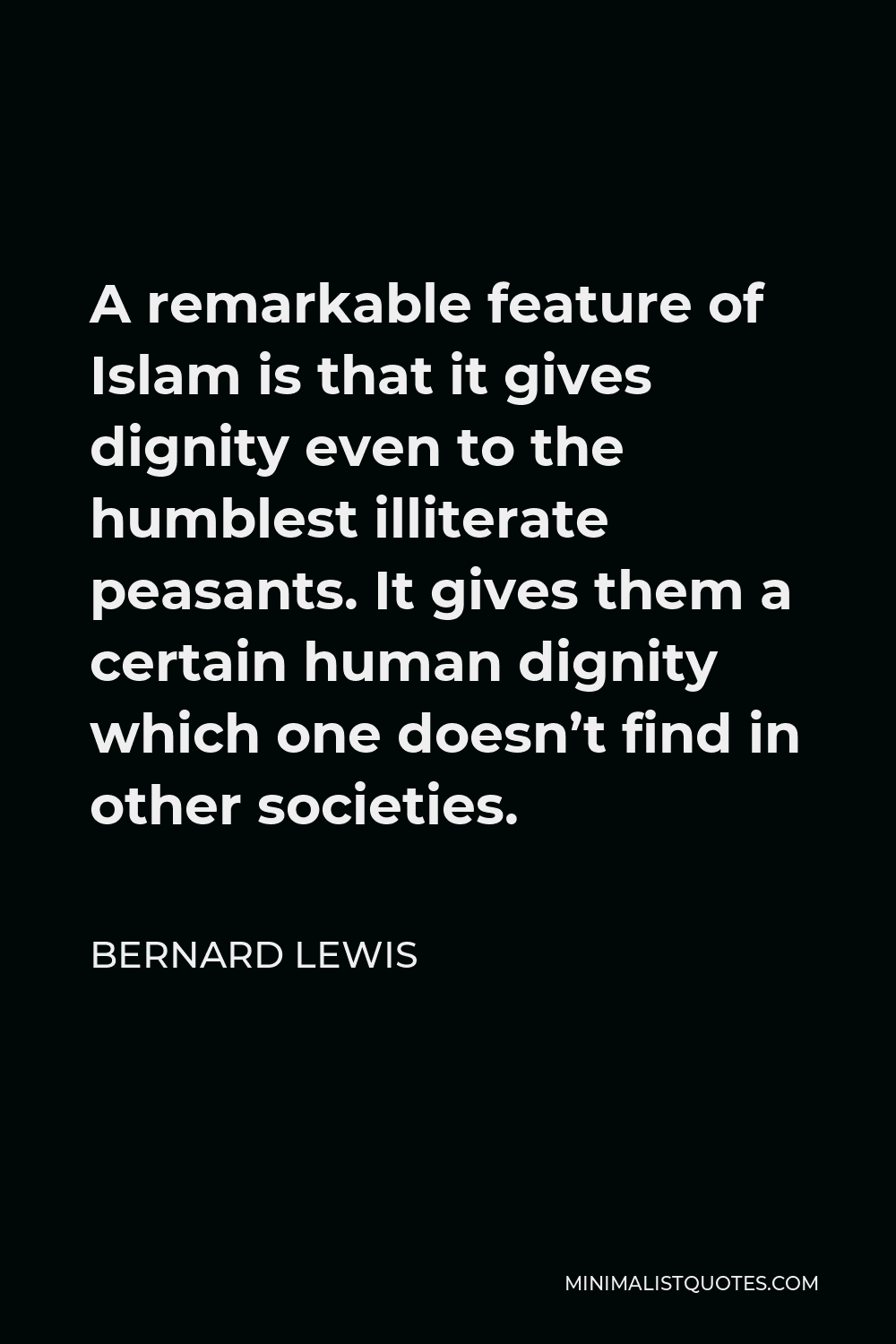
A remarkable feature of Islam is that it gives dignity even to the humblest illiterate peasants. It gives them a certain human dignity which one doesn’t find in other societies.
BERNARD LEWIS -





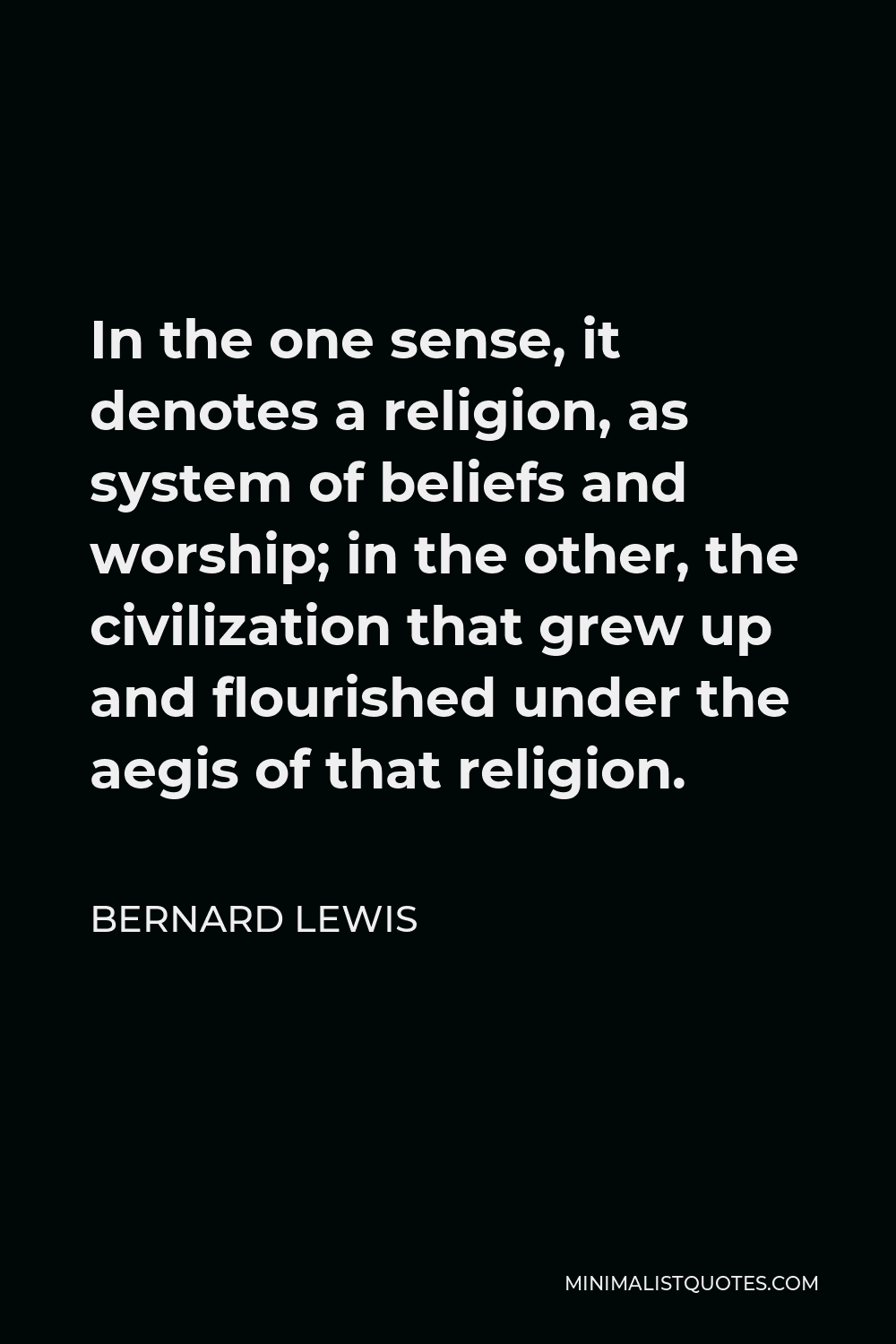
In the one sense, it denotes a religion, as system of beliefs and worship; in the other, the civilization that grew up and flourished under the aegis of that religion.
BERNARD LEWIS -





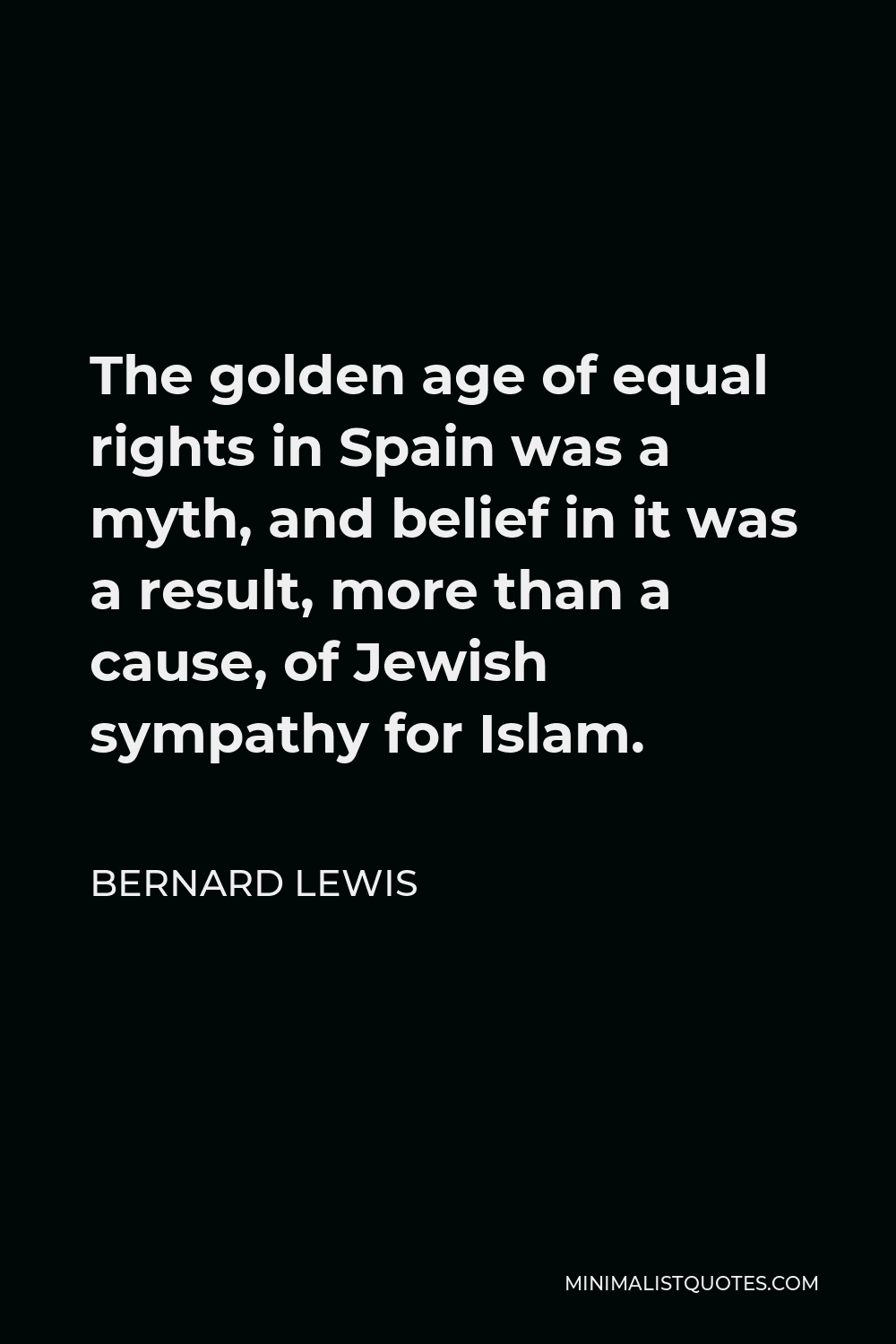
The golden age of equal rights in Spain was a myth, and belief in it was a result, more than a cause, of Jewish sympathy for Islam.
BERNARD LEWIS -





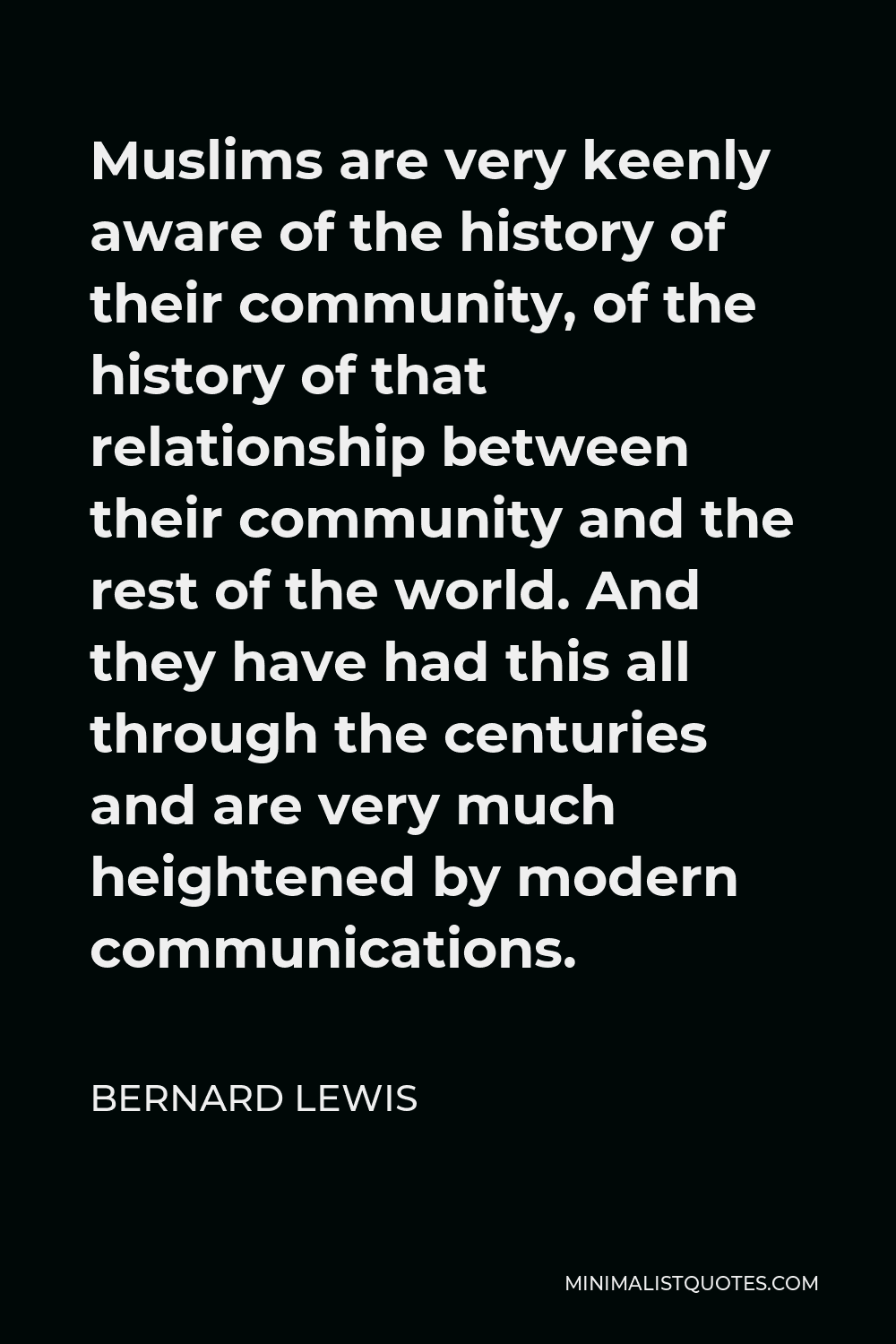
Muslims are very keenly aware of the history of their community, of the history of that relationship between their community and the rest of the world. And they have had this all through the centuries and are very much heightened by modern communications.
BERNARD LEWIS -





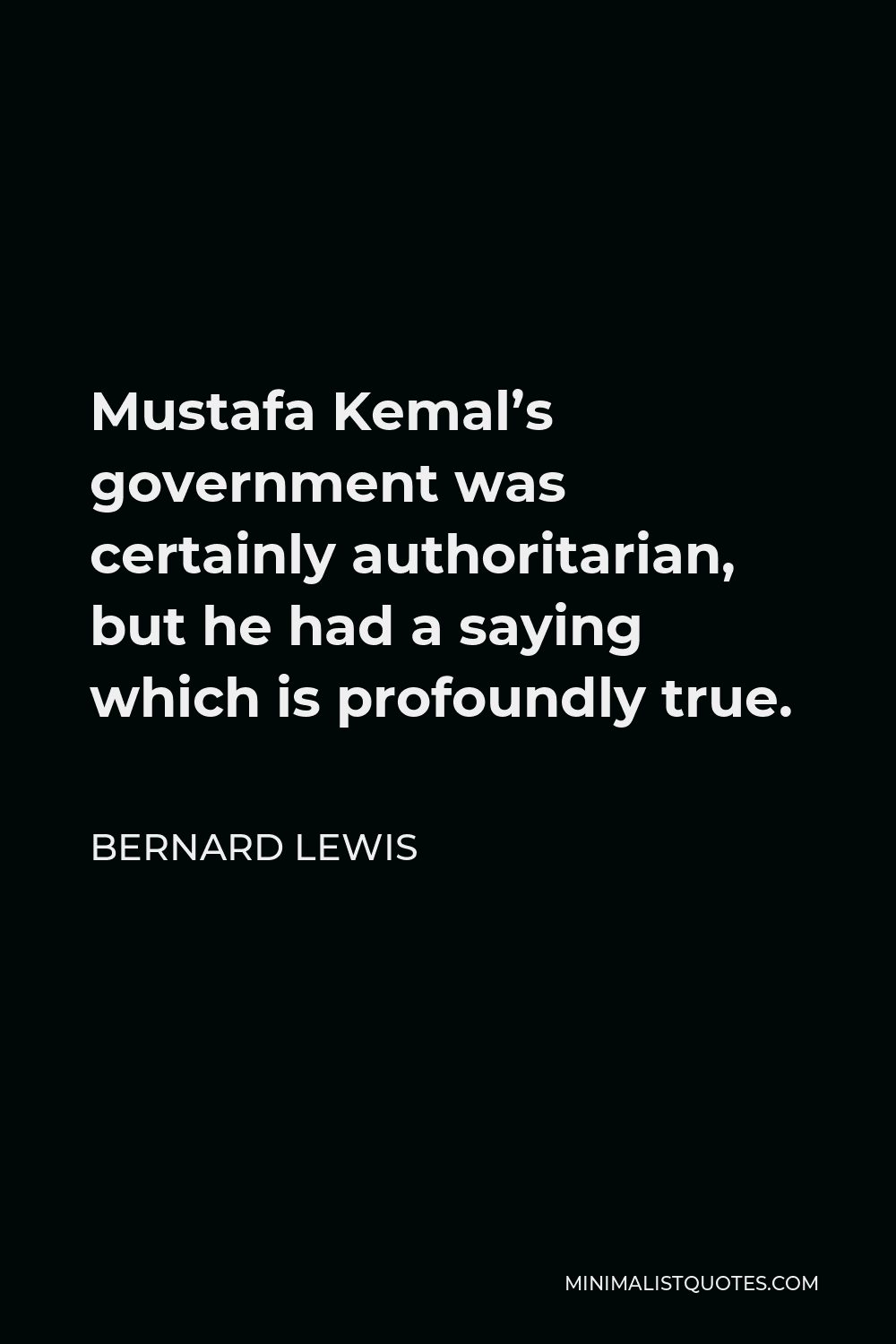
Mustafa Kemal’s government was certainly authoritarian, but he had a saying which is profoundly true.
BERNARD LEWIS -





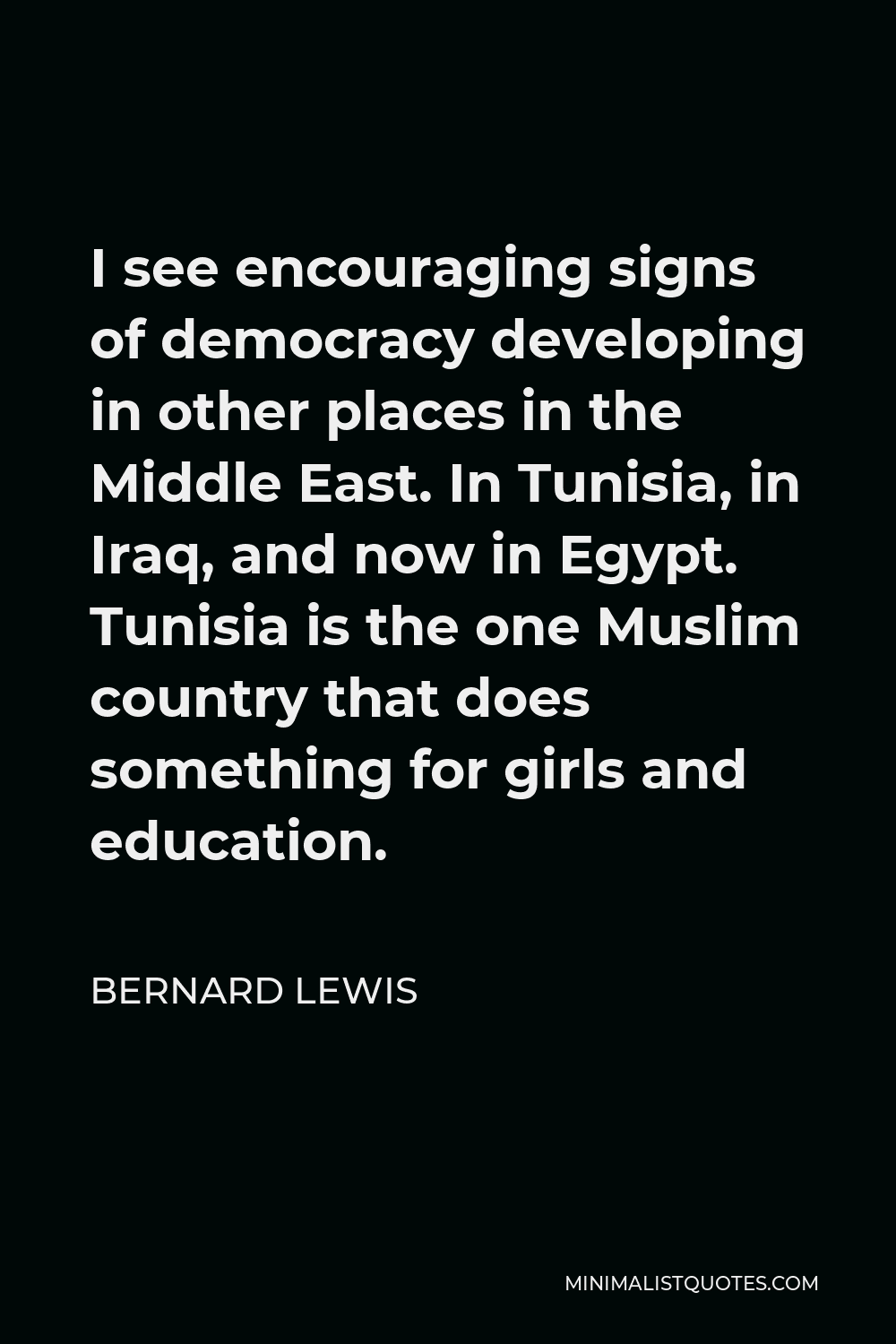
I see encouraging signs of democracy developing in other places in the Middle East. In Tunisia, in Iraq, and now in Egypt. Tunisia is the one Muslim country that does something for girls and education.
BERNARD LEWIS -





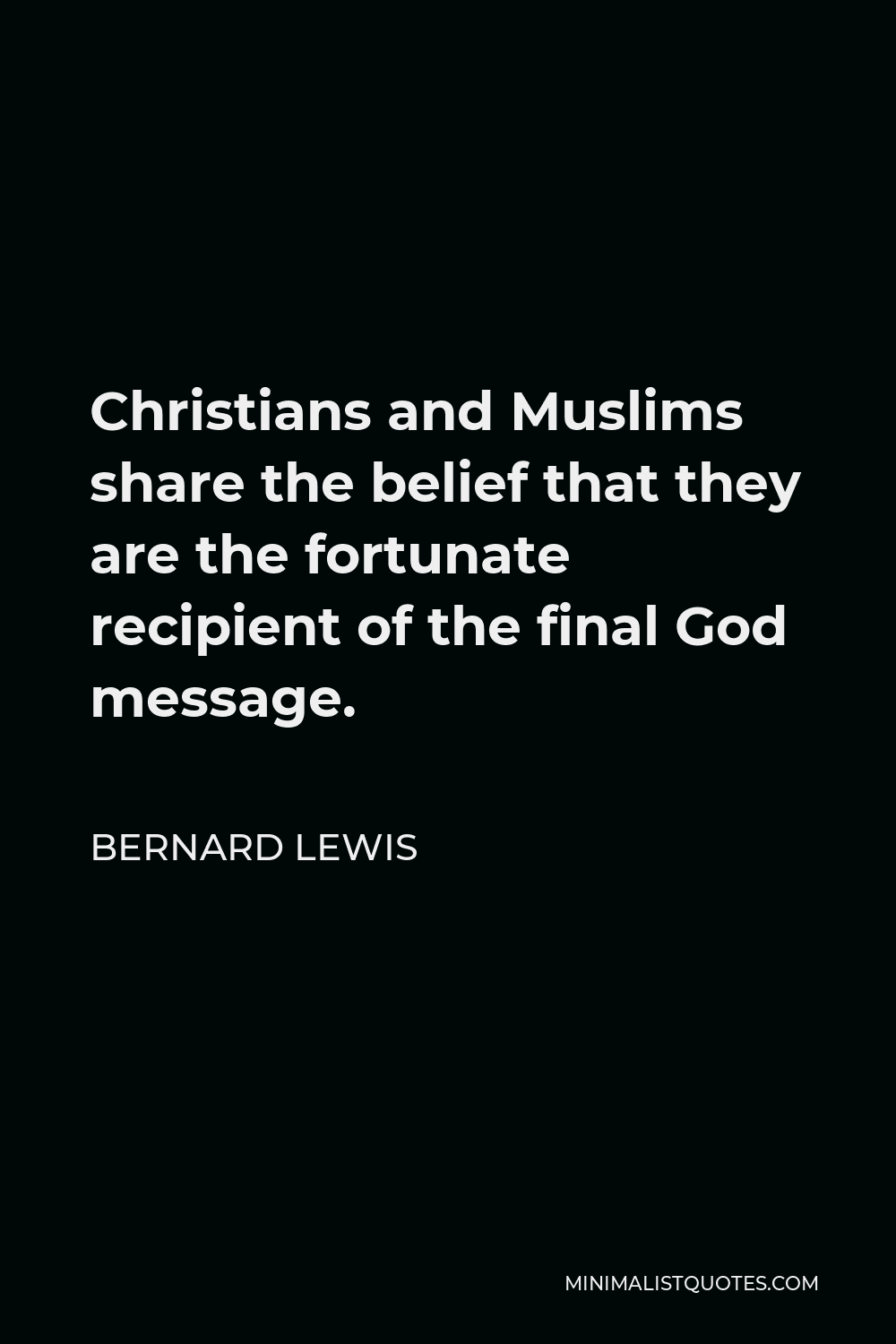
Christians and Muslims share the belief that they are the fortunate recipient of the final God message.
BERNARD LEWIS -





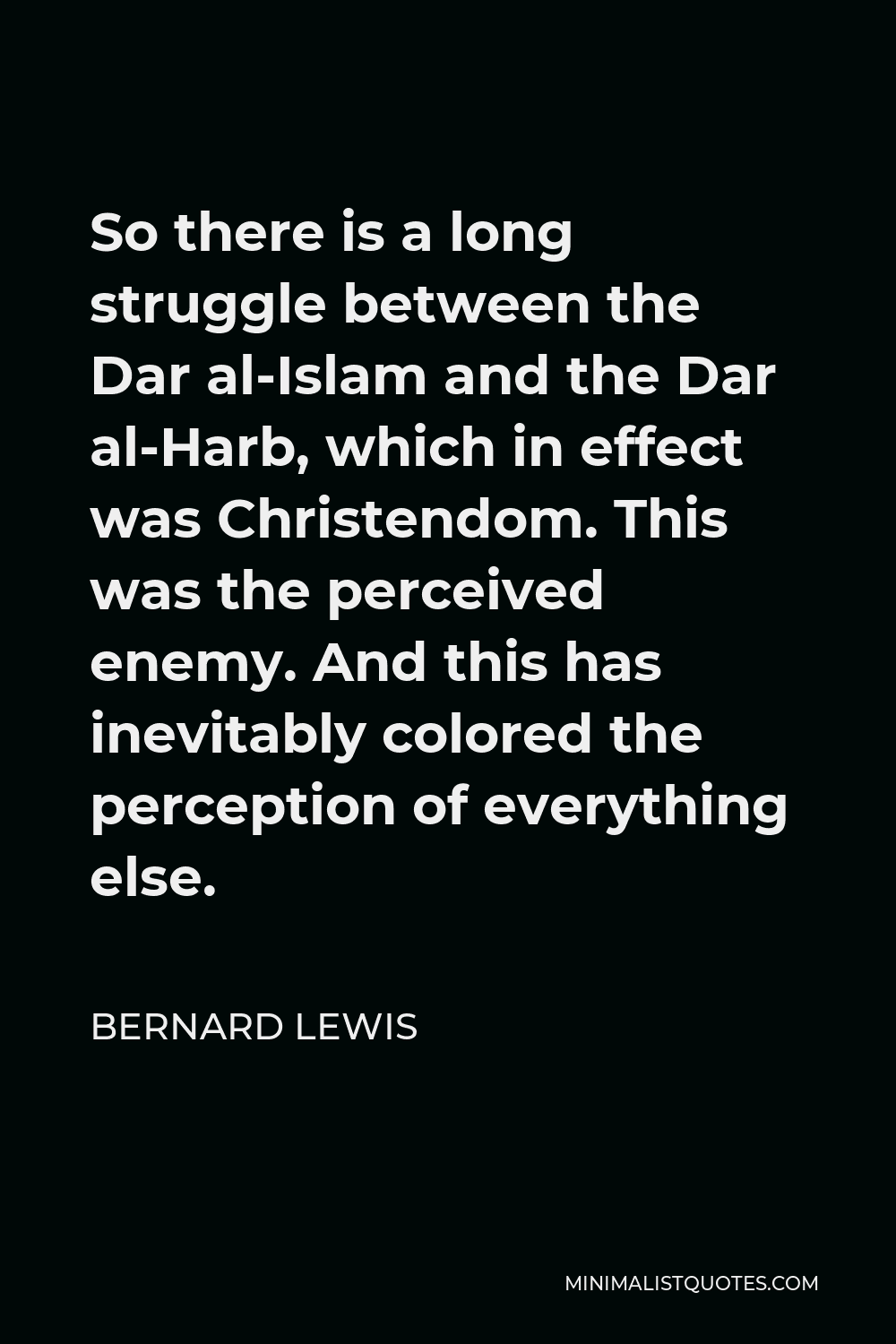
So there is a long struggle between the Dar al-Islam and the Dar al-Harb, which in effect was Christendom. This was the perceived enemy. And this has inevitably colored the perception of everything else.
BERNARD LEWIS -





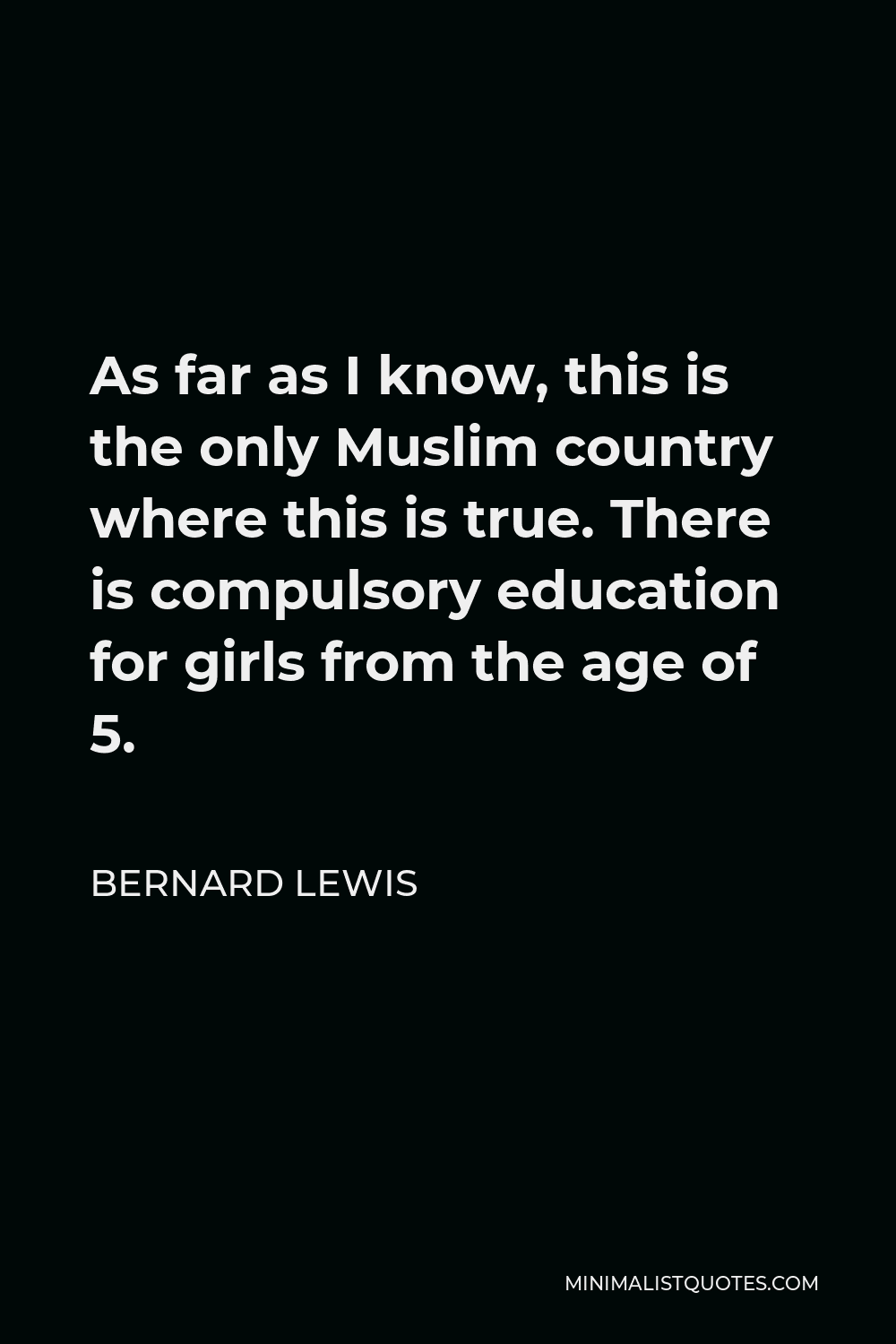
As far as I know, this is the only Muslim country where this is true. There is compulsory education for girls from the age of 5.
BERNARD LEWIS -





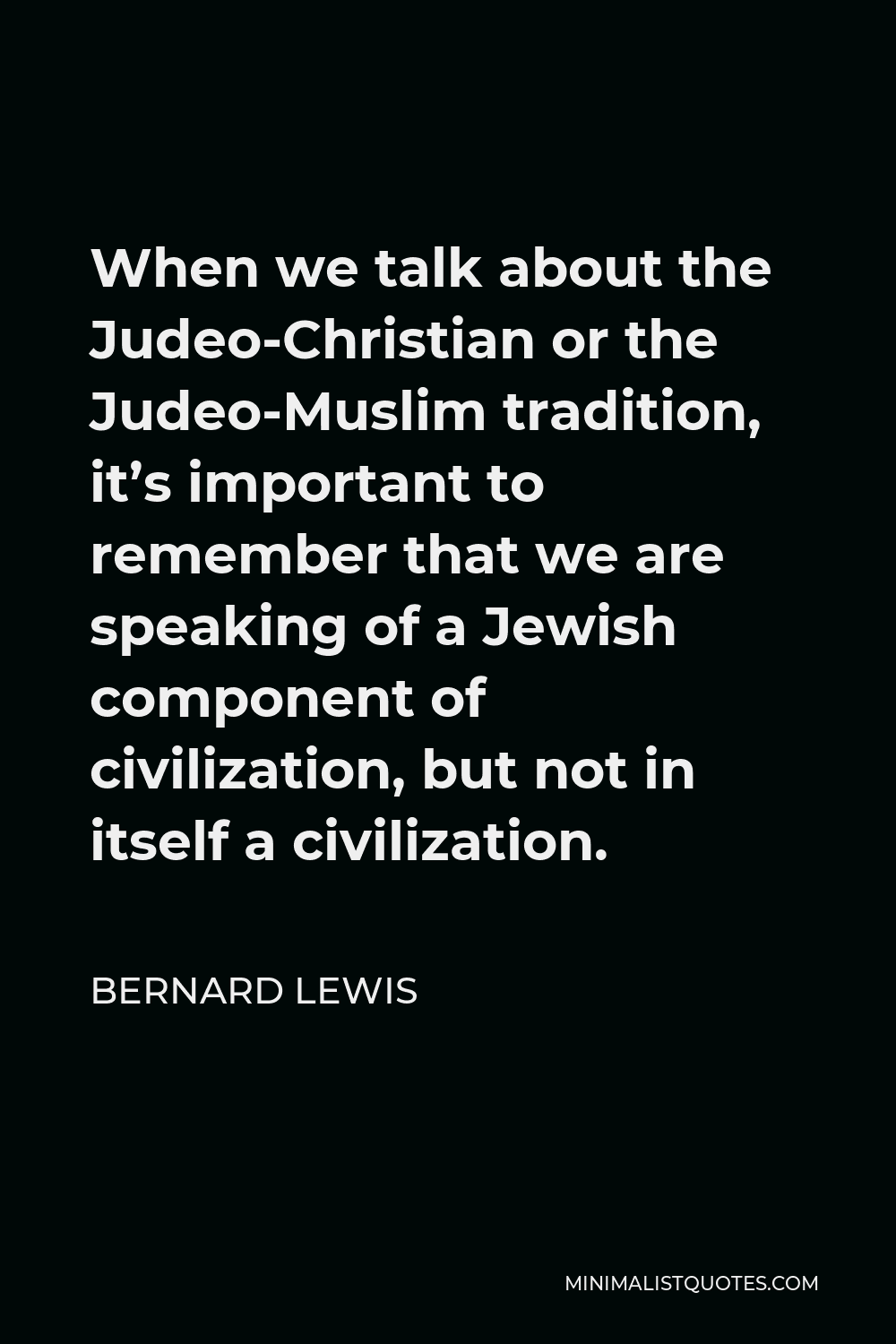
When we talk about the Judeo-Christian or the Judeo-Muslim tradition, it’s important to remember that we are speaking of a Jewish component of civilization, but not in itself a civilization.
BERNARD LEWIS -





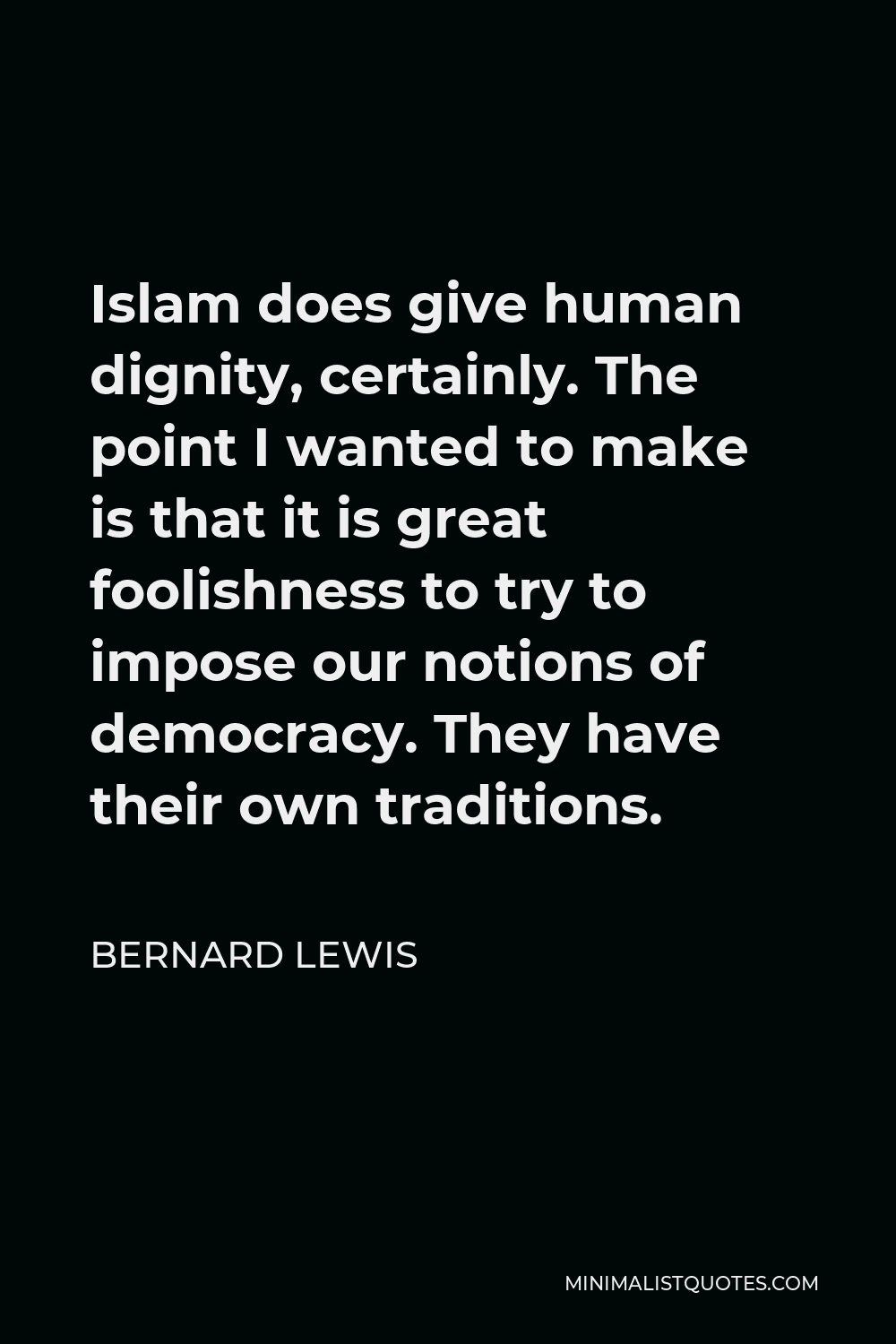
Islam does give human dignity, certainly. The point I wanted to make is that it is great foolishness to try to impose our notions of democracy. They have their own traditions.
BERNARD LEWIS -





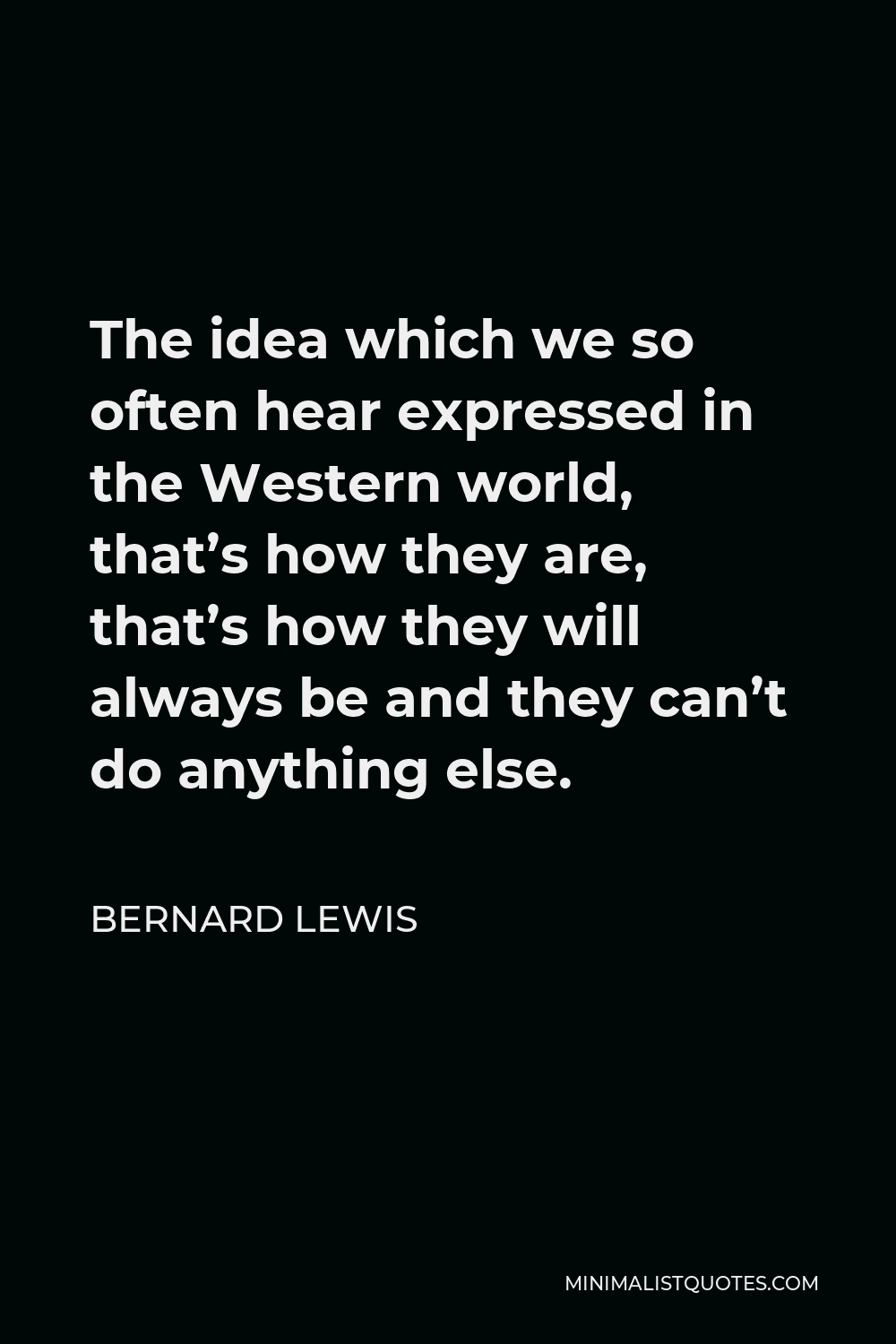
The idea which we so often hear expressed in the Western world, that’s how they are, that’s how they will always be and they can’t do anything else.
BERNARD LEWIS
